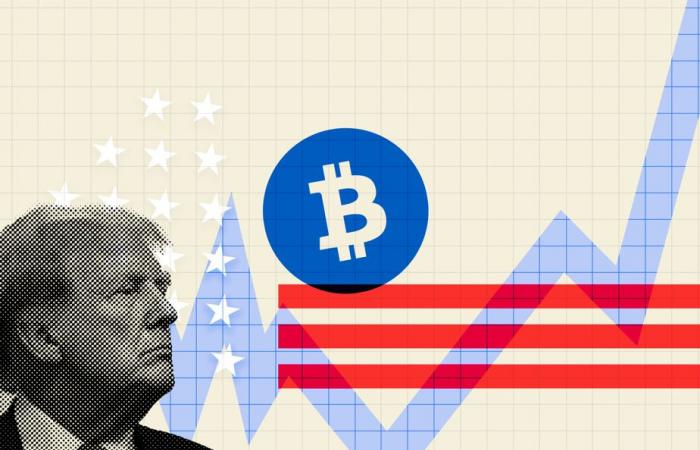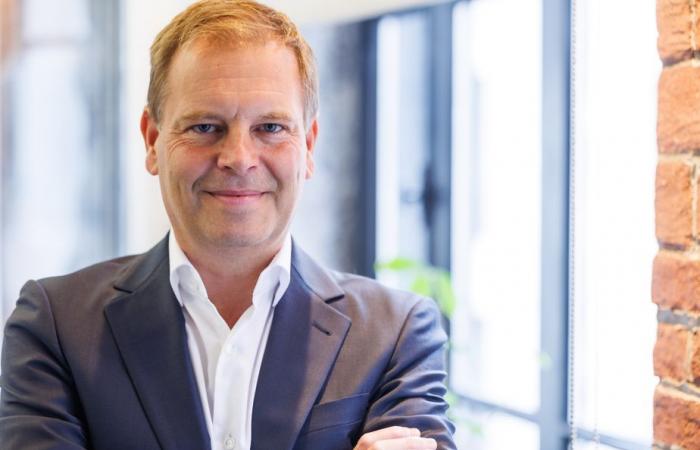Should you invest in bitcoin? This is the financial question of the hour. A question that comes up every time cryptocurrency gains value… and to which Canadian savers and small investors do not have all the answers.
Published at 5:00 a.m.
(Re)invest in bitcoin?
“It’s not a bad investment, but it’s up to the saver to decide what place they want to make for it in their portfolio. We must never forget that cryptos are the most volatile asset class on the market,” says Martin Lalonde, president and founder of the investment firm Rivemont. Established in Gatineau and Montreal, Rivemont was, at the end of 2017, among the first firms on the continent to offer its clients the opportunity to invest in a bitcoin fund.
Martin Lalonde admits that managing this fund has not been easy on a daily basis, but with an annualized return currently above 20%, that does not make him unhappy, on the contrary. “All the events in recent news that affect bitcoin work in our favor, that’s for sure,” he said. But our investment thesis lies elsewhere. »
Safe haven in search
Rivemont sees bitcoin as a safe haven for the digital economy. As gold is currently a safe haven when the global economy is more turbulent. We see it in the use of its holders: bitcoin is almost never used to sell or buy goods. In their eyes, it plays the role of a speculative asset relatively separate from more traditional macroeconomic fluctuations: unemployment, GDP growth, etc.
Whether the current improvement is temporary or not, Rivemont is not worried: the value of bitcoin is even greater than what we see these days, maintains its president Martin Lalonde. “It’s always risky to speculate, but within 5 to 10 years, demand will continue to grow, while the supply of bitcoin is limited. Its value can only continue to increase. »
Bitcoin does not currently have an official role as a safe haven, but it increasingly seems to be predestined for it. This will come to fruition a little more if, as President-elect Donald Trump hopes, the United States establishes a strategic reserve of bitcoins.
PHOTO DENIS GERMAIN, SPECIAL COLLABORATION ARCHIVES
Martin Lalonde, president and founder of the investment firm Rivemont
We have just reached an important milestone. We no longer reject bitcoin out of hand as an investment tool, we can discuss it openly. It democratizes it.
Martin Lalonde, president and founder of the investment firm Rivemont
The emergence in Canada and then the United States of exchange-traded funds (ETFs) based on bitcoin also does not harm the normalization of bitcoin… provided we do not forget the volatile nature of the beast, concludes Martin Lalonde.
“We are never safe from a relapse,” says the Gatineau investor, who suggests investors ask themselves two questions before buying bitcoin: “You have to decide if you want it, obviously, and what portion of his portfolio it should represent. This should never jeopardize his entire heritage. »
Bitcoin capital of the world?
Among Trump’s promises: to make the United States “the world capital of bitcoin” thanks to this famous strategic reserve (and some legislative relaxations which would favor its exchanges).
Instead of reselling the cryptocurrency seized by law enforcement at auction, Trump thinks the US government should use it to create loot of substantial value, to then use as its reserve. strategic oil: to stabilize the prices of cryptoassets.
Criticism quickly arose. Bitcoin does not have the central role in the global economy that oil, vital for transportation, housing, etc., can have. But there is this idea among people close to Trump that the United States could still use this strategic reserve to stabilize the particularly volatile price of bitcoin.
Somewhat to contradict this notion, Trump’s suggestion caused another surge in the price of bitcoin, which, for the first time since its creation in 2009, crossed the symbolic threshold of US$100,000 at the beginning of December, i.e. a just over $140,000 CAN.
Donald Trump, as we know, talks a lot. And in the case of bitcoin, he acted: he appointed a fervent bitcoin believer, Paul Atkins, to head the Securities and Exchange Commission (SEC), the American federal financial authority. He has enlisted the services of a former executive of the online payment platform PayPal, David Sacks, as an advisor in cryptocurrency and artificial intelligence.
People who know MM. Atkins and Sacks are confident they are likely to exclude bitcoin from what the SEC considers securities. This will avoid being subject to the rules of the investment market.
Avoiding current legislation is indeed the best way to relax the rules governing bitcoin… and it is also a clear signal that bitcoin will continue to be an investment to be made at your own risk, whatever its promoters say. .







